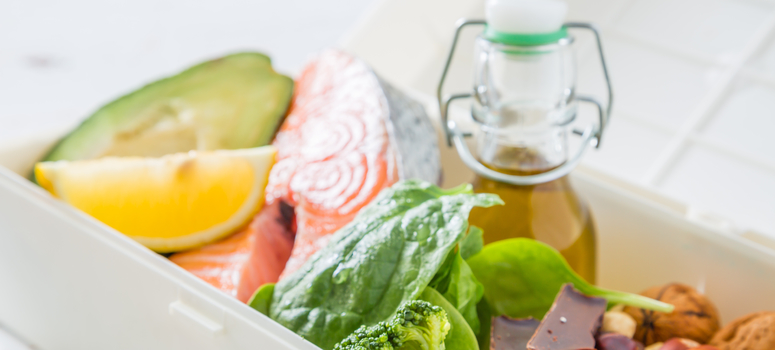NAFC Newsletter
2 Ways to Beat the Summer Heat!
By Tammy LeBoss | thefitprofoodie.com

The heat is here, school is out and the summer games on!
Fun and games can however, become ‘not so fun’ when water intake is overlooked and good oils are turned bad. This summer, be sure to pay extra attention to oil and water—how to properly store, and how much to drink, respectively. Water has been referred to as the 2nd most important nutrient after oxygen. Here’s why it’s critical to our health. Did you know that mild dehydration is one of the most common causes of daytime fatigue? Estimates show that 75% of Americans have mild, chronic dehydration. This is alarming since proper hydration is required for maintaining healthy blood flow, proper kidney function, proper sodium/potassium/electrolyte balance and proper digestive functions.
Water gives us life. Did you know that the human body is comprised of 65% water? Water is necessary for life to exist, makes us healthier and it’s incredibly refreshing especially after a workout. Water is not only the most important nutrient in the body, but also the most abundant. It’s critical to the balance of all the body's systems, including the brain, heart, lungs, kidneys and muscles. In fact, the body needs water for millions of metabolic processes, temperature control, fluid volume, and lubrication.
Can we drink too much water and how much is enough?
When determining how much water is appropriate, consider the individual. How much to drink each day will depend upon a few variables. Drink enough water to replace normal daily losses via perspiration, waste removal, and breathing.
The following factors also contribute to the need for increased water consumption:
- Increased or hot weather
- Increased workload
- Increased respiration
- Increased bowel movements
- Large amounts of caffeine or sugar consumed
NAFC’s Nutrition Coach Course recommends the following rule-of-thumb formula for determining your optimum daily water intake: Consume between 1⁄2 to 1 oz. of purified water per day per pound of body weight depending upon your general activity level and your environmental conditions or surroundings.
This does not include compensation for losses due to exercise or excessive sweating. Add another 6-12+ ounces per 15-20 minutes of exercise depending on how hot it is, the relative humidity, and how much you sweat in relation to others under the same conditions. Although the exact amount of water needed per day is undetermined by scientists, we believe it depends on the individual.

Preventing Good Oils from Turning into Bad
We’ve all heard about the health benefits of olive oil. Embraced by many health nuts, ‘good fats’ such as olive oil, fish oil, coconut oil, avocado and walnuts are known to fight inflammation, reduce risk of heart disease, and reduce the likelihood of Alzheimer’s disease. Many of us cook with olive oil, but did you know that olive oil is only good for us when it’s used cold? Increased heat can increase the likelihood of oxidation. In fact, it's important to realize olive oil is not necessarily good for cooking. Why? Due to its chemical structure and a large amount of monounsaturated fats such as oleic acid, heating olive oil when cooking can turn this good fat into a bad one. To learn more, geek out on science with NAFC’s Nutrition Coach Certification and find out how heat can actually damage certain foods, changing their molecular structure(s) so they’re no longer beneficial to our health.
Concerned about oxidation and rancidity? Try cooking with coconut oil. It is the ideal choice because it’s a vegetable fat stable enough to resist heat-induced damage. This summer, protect your oils from going bad; store foods, namely good oils away from sunlight and heat.
Here are more tips for protecting your food oils:
- Keep in a cool, dark place -darkness is key because light will definitely oxidize the fats in olive oil and other good fats
- Purchase smaller bottles rather than larger to ensure freshness
- Immediately replace the cap after each pour, keeping bottles tightly capped
- Add olive oil or other healthy oils to foods after cooking
- Avoid leaving food out exposing it to air; the longer food sits around, the greater the likelihood of oxidation
With respect to light, purchase oils in bottles made from darker-tinted glass. They will usually be dark brown or dark green in glass color. Also, store your oils, almond butter and nuts in a cabinet that is lightproof. With respect to heat, many oils can be kept fresh if stored in the refrigerator where the temperature remains continuously low. To learn more, do your research to understand the chemical composition of an oil. This is will be a key factor in preventing the risk of rancidity and potential health issues. Remember 1 key basic principle involved in saturated and unsaturated fats: The more saturated fat contained in an oil, the less susceptible it is to rancidity. The greater the amount of unsaturated fat in an oil, the more likely it is to become rancidity.
Remember, fat heals, protects and satisfies us—
...but only when it’s kept fresh for our stomach and taste buds!

